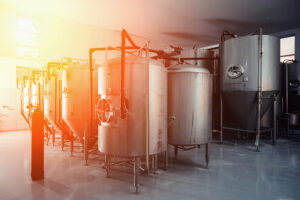Study finds brewery wastewater has “potential to become bioenergy”

MUT said that, as water continues to be a scarce resource across the globe and the energy crisis continues to impact South Africa, researchers are trying to find environmentally friendly ways of extracting the full benefits of the resources that the nation already has.
MUT said the findings of this study are important because although the brewing industry is essential for the South African economy, brewing requires a lot of water.
“Generally, brewing of beer requires substantial amounts of water: to make 1m³ of beer, a volume of wastewater of 10–20m³ is produced,” the study explained. “The brewing process includes malting, mashing, wort filtering, wort boiling, fermentation, maturation, stabilisation and clarification.”
In terms of the Oxidation Reduction Potential (ORP), the study found that “brewery wastewater can be treated by biological processes on the basis that the reported ORP range permits biological activities”.
The university added that, as far as the brewery wastewater composition is concerned, the study found that the contents of the water depended largely on the activities that were taking place at the brewery.
“The brewery wastewater treatment plant influent stream composition fluctuates significantly owing to the brewery in-house activities (i.e., washing of malted barley, which is rich in carbohydrates, brewing kettles, yeast fermentation tanks, as well as other beer processing units) and the chemical utilised.
The study, which was published in the journal “Water”, titled “Characterisation of South African Brewery Wastewater: Oxidation-Reduction Potential Variation”, was co-authored by Mangosuthu University of Technology (MUT) acting dean of the Faculty of Engineering Professor Babatunde Bakare, Professor Sudesh Rathilal from Durban University of Technology (DUT), Siphesihle Mangena Khumalo and Emmanuel Kweinor Tetteh.


















